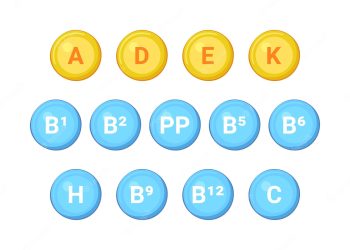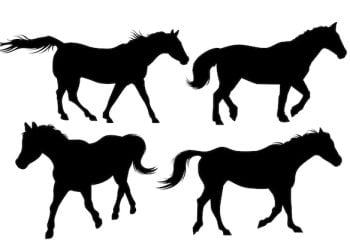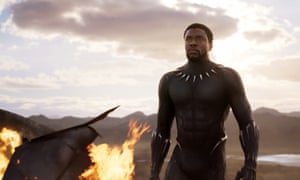
Like Hollywood, the games industry is facing a moment of self-reflection. For too long it has told the same stories, centring on the same white, male heroes. Game creators are finally examining the lack of diversity in their stories, but so far, representation of black people has been timid and predictable. With the number of women in the UK industry at just 14% and BAME representation at 4%, the narrative gatekeepers in games are primarily white men. If they are to find a broader range of stories, they need to rethink their representations of black people.
Afrofuturism explores the idea of a black future, offering a rich source of inspiration for games. Black Panther, the story of an African superhero and the king of the fictional Wakanda, the most technologically advanced nation on the planet, is bringing Afrofuturism to the masses. In a cultural landmark moment, it is the first solo film for a black Marvel superhero. It is currently breaking box-office records, proving the demand for diverse stories.
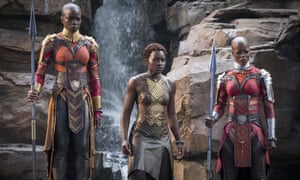
This comes in the wake of the success of the Marvel Netflix show Luke Cage, an unapologetically black series that didn’t flinch from the hard topics of police brutality and criminality. And it can be no coincidence that George RR Martin is now involved in the HBO adaptation of Nigerian American author Nnedi Okorafor’s science-fiction novel, Who Fears Death. The hope is that where film and TV go, games will follow.
Although the term wouldn’t be coined until the 1990s, Afrofuturism has its roots in the literature of the 1950s and the music and imagery of artists such as Sun Ra and Jean-Michel Basquiat. Jimi Hendrix and Sun Ra both played with themes of space to dismantle racism on planet Earth. It’s this intersection of technology, politics and art that lies at the heart of Afrofuturism. From George Clinton’s sci-fi funk to the android alter ego of Janelle Monáe, black artists are still exploring themes of black people travelling across the cosmos in search of liberation from violence and oppression, as well as spiritual enlightenment. But Afrofuturism isn’t just about black people in space. Incorporating music, science fiction, politics, philosophy and feminism, it’s a movement of artists and creators across the full range of disciplines, who explore pre- and post-colonial spaces for black people.
Black Panther, AKA T’Challa, is one of Marvel’s few black comic book characters and a key Afrofuturist figure, making the film a significant moment. It’s also worth noting that the cast and crew are primarily black and the movie’s tone reflects this. Rather than uprooting Black Panther to the streets of New York, which a white creative team may have done, the film takes place in Africa and a black kingdom, Wakanda, untouched by colonialism. Stepping beyond the roles normally reserved for black characters, the world of Wakanda delivers images of black people as scientists, innovators and statespeople and black women as strong, powerful and central.

Hollywood feels most comfortable with black leads in stories of brutalising oppression, such as 12 Years a Slave, Mudbound or Precious. These narratives often achieve mainstream and critical success. Understandably, the games industry uses Hollywood as a source of inspiration, but this means it’s telling the same old stories of black men and women as criminals, slaves, sassy sidekicks, servants, bad mothers or prostitutes, if they appear at all.
Last year, Watchdogs 2 and Mafia III were applauded for their portrayals of the black experience. In Watchdogs 2, Marcus gently subverts the familiar formula of a black man in an urban setting because he’s a hacker, rather than a gangster: he’s more familiar with his laptop than a gun. The game does deal with microaggressions, such as facial recognition technology not recognising black faces, but ultimately Marcus is in a familiar inner-city setting with a hip-hop soundtrack.
Also released in 2017, Mafia III was a departure for the gangster-themed series, featuring the debut of its first black lead, Vietnam veteran Lincoln Clay. Set in the 1960s against the backdrop of the civil rights movement, the game doesn’t shy away from the racism of the time and has been praised for its writing. Sadly, it still falls back on the familiar story of black struggle.
Even in Assassin’s Creed: Origins, the first game in the series to be set in Africa, when the player comes back to the contemporary world rather than the historical Egypt conjured by Animus technology, the people in control are white. Once again, black people are relegated to history. They are not the masters of the technology on which the Assassin’s Creed story hinges; they are phantoms from the past.
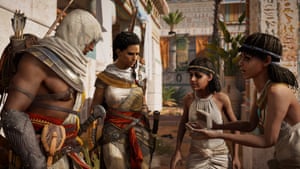
Occasionally, games do imagine a hi-tech future with black people and women as central figures, in stories that don’t focus on their oppression. Both Fullbright’s Tacoma and Dontnod’s Remember Me managed this, but they are notable exceptions. Coding aliens as black is a trap that games often fall into, a recent example being the Angara in Mass Effect Andromeda. Jaal, the main character amongst the Angara, is played by a black voice actor; we later discover that they are being enslaved by another race.
If the only future for black characters in games is being thinly disguised as the exotic other, or reduced to the role of space slaves, it’s really time to move on. Black Panther shows games a way to change the narrative.
Afrofuturism reverses the erasure of black people from the present and the future. It is about optimism, a challenge to look beyond black suffering and imagine a better tomorrow. The games industry must aim to become diverse enough for black storytellers to get involved, but it’s not at that point yet. Until then, the hope is that #BlackPantherSoLit fever has enough of an impact on the games industry to bring us games featuring Afronauts on cosmic adventures.
- This article was amended on 26 February 2018. An earlier version incorrectly stated that Mass Effect’s Angara were “almost entirely” voiced by black actors.
Source:-theguardian


